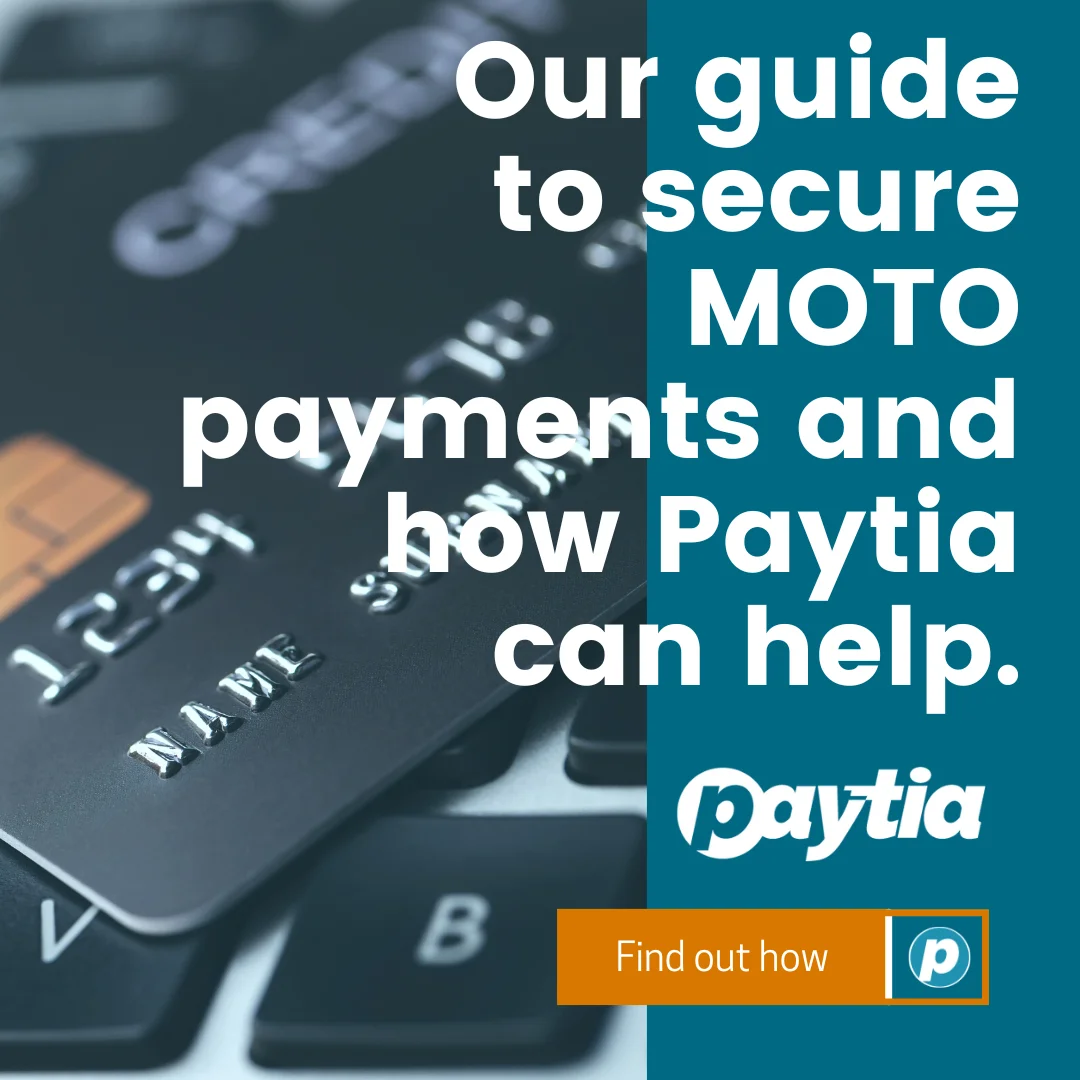
MOTO Payment Fraud Protection with Paytia
Try MOTO Payment Solutions
Secure mail order and telephone order payments with Paytia's MOTO capture services.
In 2024, global fraud losses soared to over $12.5 billion, marking a 25% increase from the previous year (FTC, 2025). A significant portion of these losses stemmed from card-not-present (CNP) fraud, which includes Mail Order/Telephone Order (MOTO) transactions. As businesses increasingly rely on phone-based payments, the vulnerabilities associated with these methods have become a critical concern for merchants and consumers alike.
Understanding MOTO and CNP Transactions
MOTO transactions are a subset of CNP transactions, where customers provide their credit or debit card details over the phone or through mail without presenting the physical card. CNP, like online purchases, are also considered CNP transactions
. While these methods offer convenience, they are inherently vulnerable to fraud due to the absence of physical card verification. When customers read out sensitive card information over the phone, it can be intercepted by fraudsters, recorded by unscrupulous agents, or mishandled by businesses, leading to significant security risks.
The Scale of Payment Fraud
Recent data underscores the escalating threat of payment fraud, particularly in CNP and MOTO transactions:
- The Recorded Future 2024 Payment Fraud Intelligence Report revealed that in 2024, 269 million card records were posted on dark and clear web platforms, with CNP data dominating, reflecting the prevalence of e-commerce and phone-based fraud.
- eMarketer reported that CNP fraud accounted for 73% of card payment fraud losses in 2023, totaling $9.49 billion, up from 57% in 2019, with projections indicating continued growth.
- CardRates.com projects that CNP fraud will reach $49 billion globally by 2030, highlighting the long-term challenge.
- According to ACFE, businesses lose an average of 5% of their annual revenue to fraud, with small businesses particularly vulnerable due to limited security resources.
Advanced MOTO Payment Security Features
Modern MOTO payment systems incorporate sophisticated security layers including tokenization, encryption, and real-time fraud monitoring. These technologies work together to create an impenetrable barrier against unauthorized access while maintaining smooth transaction processing.
Real-Time Fraud Detection
Advanced algorithms analyze transaction patterns, geographic locations, and behavioral indicators to identify potentially fraudulent activity instantly. Proactive approach prevents losses before they occur.
Compliance and Certification
Maintaining PCI-DSS Level 1 compliance ensures your MOTO payment infrastructure meets the highest industry standards. Regular audits and certifications demonstrate commitment to data protection and regulatory adherence.
Integration and Implementation
smooth integration with existing business systems minimizes disruption while maximizing security benefits. Professional implementation services ensure optimal configuration for your specific business requirements.
Ready to Secure Your Payment Processing?
Paytia provides secure, PCI DSS compliant payment solutions that protect your business and customers. Learn how we can help you reduce compliance burden while improving security.
Ready to Improve Your MOTO Payments?
Get secure, compliant MOTO payment processing with Paytia. Contact us to get started.
